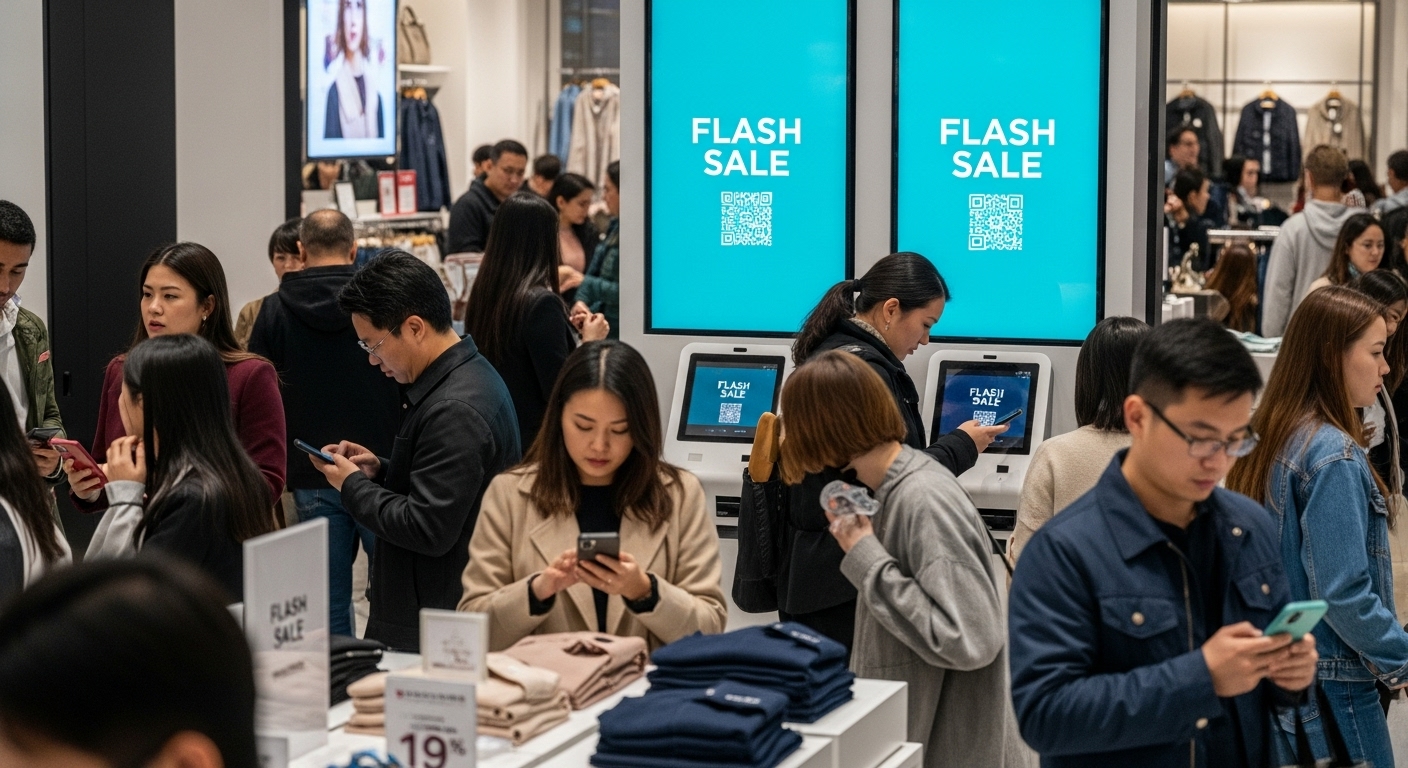-
Shop
- Advanced Technologies
- AI Career Advantage Collection
- AI Skills Mastery 2026 Collection
- Apple Accessories
- Arts, Crafts & Hobbies
- Back to School
- Bathroom
- Best-Sellers
- Car Accessories
- Clothing
- Dating & Social Skills
- Digital Resources
- AI Skills
- Beauty
- Budgeting & Saving
- Car Buying & Ownership
- Cozy Feast Collection
- Dating & Social Confidence
- Electronics & Technology
- Emotional Intelligence
- Entrepreneurship & Business Growth
- Financial Independence
- Financial Mindset & Psychology
- Goal Setting
- Halloween Digital Collection
- Home & Living
- Home Styling & Organization
- Kitchen & Cooking
- Leadership
- Mindfulness
- Motivation
- Nutrition & Healthy Eating
- Online Business
- Parenting & Child Development
- Pet Lifestyle & Wellness
- Positive Thinking
- Productivity
- Recipes
- Self Confidence
- Sleep Improvement
- Smart Amazon Shopping
- Stress Management & Relaxation
- Travel Planning
- Wellness
- Wellness & Self-Care
- Yoga & Fitness
- Yoga & Mind-Body Practices
- Education & Learning
- Family & Parenting
- Fashion
- Alexander McQueen
- Bags
- Bags & Wallets
- Balenciaga
- Belts
- Blazers
- Blouses & Shirts
- Bottega Veneta
- Brunello Cucinelli
- Burberry
- Chanel
- Chloé
- Dior
- Dolce & Gabbana
- Dresses
- Etro
- Fendi
- Gucci
- Hats & Hair Accessories
- Hoodies & Sweatshirts
- Jacquemus
- Jewelry
- Jil Sander
- Jimmy Choo
- Keychains
- Kiton
- Laptop Sleeves
- Luggage
- Luggage Bags
- Men's Fashion
- Miu Miu
- Off-White
- Outerwear
- Passport Covers
- Phone Cases
- Prada
- Rick Owens
- Saint Laurent
- Shoe Accessories
- Shoes
- Skirts
- Socks
- Socks & Tights
- Sunglasses
- Sweaters & Cardigans
- The Row
- Tom Ford
- Tops & Shirts
- Tumblers
- Valentino
- Valentino Garavani
- Versace
- Vivienne Westwood
- Watches
- Fashion Accessories
- Financial Education
- Furniture
- Gadgets
- Health & Beauty
- Health & Wellness
- Home & Garden
- Home Supplies
- Kids & Babies
- Kitchen
- Kitchen & Recipes
- Kitchen Best-Sellers
- Lighting
- Nike
- Patio, Lawn & Garden
- Personal Growth
- Personal Style & Fashion
- Pet Care
- Pet Supplies
- Pets
- Samsung Accessories
- Sport & Outdoors
- Super Deals
- TikTok Growth & Monetization Mastery
- Travel
- Valentine’s Day Inspiration
- Wealth
- Wealth Building
- Winter Fashion
- YouTube Shorts Best-Sellers
- Popular
- Best deals
What is Flash Sale? Understanding Its Impact and Function

Flash sales are taking over online shopping with breakneck speed and urgency. Some of these events last only a few hours, and shoppers snap up deals so fast that inventory can sell out in less than 10 minutes. Most people think it is all about the discounts and rush, but there is a much deeper reason these short-term deals make headlines. The real secret is how flash sales tap into your emotions and psychology, turning ordinary shopping into a thrill ride.
Table of Contents
- What Is A Flash Sale? Defining The Concept
- The Significance Of Flash Sales In Online Shopping
- How Flash Sales Function: Key Features And Mechanics
- The Psychology Behind Flash Sales: Why Do We Buy?
- Examples Of Successful Flash Sales: Real-World Context
Quick Summary
| Takeaway | Explanation |
|---|---|
| Flash sales create urgency to buy. | Limited-time offers compel consumers to make quick purchase decisions, enhancing excitement and engagement. |
| Leverage consumer psychology effectively. | Understanding psychological triggers like FOMO helps retailers design more appealing marketing strategies. |
| Technology enhances flash sale experiences. | Advanced online platforms ensure smooth transactions and real-time updates, crucial for engaging consumers during sales. |
| Flash sales boost brand awareness. | These events create buzz and excitement, helping brands attract new customers and increase visibility. |
| Variety of sectors benefit from flash sales. | Different industries use tailored approaches, showcasing versatility in how flash sales can drive customer interest and sales. |
What Is a Flash Sale? Defining the Concept
A flash sale represents a strategic retail marketing technique where businesses offer substantial product discounts for an extremely brief and time-limited period. Typically lasting between a few hours to 24-48 hours, these sales create a sense of urgency that compels consumers to make quick purchasing decisions.
The Core Mechanics of Flash Sales
Flash sales operate on a fundamental principle of limited-time availability and significant price reductions. Retailers strategically design these events to trigger several psychological consumer responses:
- Create immediate purchasing excitement
- Generate rapid decision making
- Provide perceived exceptional value
- Clear existing inventory quickly
Unlike traditional sales that might run for days or weeks, flash sales compress the entire shopping experience into an intensely concentrated timeframe.
 According to the Cambridge English Dictionary, these sales are characterized by dramatically reduced prices during an extremely short window of opportunity.
According to the Cambridge English Dictionary, these sales are characterized by dramatically reduced prices during an extremely short window of opportunity.
Understanding Consumer Psychology
The effectiveness of flash sales stems from fundamental psychological triggers. Consumers experience a combination of fear of missing out (FOMO) and the excitement of securing an exceptional deal. The compressed timeframe transforms shopping from a routine activity into an adrenaline-charged experience.

Key psychological elements driving flash sale engagement include:
- Time scarcity
- Perceived exclusivity
- Significant price reductions
- Emotional purchasing impulses
Retailers leverage these psychological mechanisms to convert consumer interest into immediate sales, transforming what might be ordinary transactions into extraordinary shopping events. By creating a sense of urgency and offering substantial discounts, businesses can quickly attract attention, drive sales volume, and engage customers in a unique, memorable shopping experience.
Below is a table summarizing the psychological triggers commonly leveraged in flash sales and how each influences consumer behavior.
| Psychological Trigger | How It Influences Consumers |
|---|---|
| Time Scarcity | Creates urgency, prompting faster decision-making |
| Perceived Exclusivity | Makes consumers feel they are part of a select group |
| Significant Price Reductions | Increases perceived value and encourages immediate action |
| Emotional Impulse | Drives unplanned purchases due to excitement and anticipation |
| Fear of Missing Out (FOMO) | Compels consumers to buy to avoid regret |
| Scarcity Perception | Elevates desirability as supply appears limited |
| Competitive Instincts | Inspires quicker action to “win” limited deals |
The Significance of Flash Sales in Online Shopping
Flash sales have transformed the digital retail landscape, emerging as a powerful marketing strategy that reshapes consumer purchasing behaviors and provides substantial benefits for both businesses and shoppers. These time-sensitive events represent more than just temporary discounts they are sophisticated engagement tools that leverage technology and consumer psychology.
Economic Impact and Business Strategy
For online retailers, flash sales serve multiple strategic purposes beyond simple inventory clearance. Businesses utilize these events to achieve several critical objectives:
- Rapidly generate revenue during slow sales periods
- Attract new customer segments
- Create buzz and excitement around product offerings
- Test market demand for specific products
- Build brand awareness through viral marketing potential
According to research from Arizona State University, online consumer discussions during flash sales significantly influence purchasing decisions, demonstrating the complex digital ecosystem these events create.
Consumer Engagement and Digital Shopping Dynamics
Flash sales represent a sophisticated intersection of technology, marketing, and consumer behavior. The digital platforms enabling these sales have fundamentally altered traditional shopping experiences. Consumers now expect personalized, immediate, and interactive shopping opportunities that transcend conventional retail models.
Key engagement factors include:
- Real-time purchase notifications
- Mobile-friendly interfaces
- Instantaneous transaction processing
- Transparent inventory tracking
- Seamless payment integrations
These technological capabilities transform flash sales from simple discount events into immersive, engaging digital experiences that connect brands directly with consumers. By creating time-sensitive, emotionally compelling shopping moments, retailers can generate unprecedented levels of customer interaction and brand loyalty.
How Flash Sales Function: Key Features and Mechanics
Flash sales represent a sophisticated digital retail mechanism that combines technology, marketing strategy, and consumer psychology to create unique purchasing experiences. These time-sensitive events are meticulously designed to maximize consumer engagement and drive rapid purchasing decisions through carefully orchestrated digital platforms.
Technological Infrastructure and Design
Online platforms enable the intricate mechanics of flash sales through advanced technological systems that support rapid, real-time transactions. These digital environments are engineered to create seamless, high-speed shopping experiences that capitalize on consumer impulses and technological capabilities.
Key technological components include:
- Advanced inventory management systems
- Real-time price adjustment algorithms
- Secure payment gateway integrations
- Automated countdown timers
- Instant notification mechanisms
According to research examining consumer behavior, the technological infrastructure behind flash sales plays a crucial role in creating compelling shopping experiences that drive consumer engagement.
Psychological Triggers and Consumer Dynamics
Flash sales leverage sophisticated psychological mechanisms to transform ordinary shopping interactions into emotionally charged experiences. The compressed timeframe and limited availability create powerful motivational triggers that compel consumers to make immediate purchasing decisions.
Primary psychological drivers include:
- Scarcity perception
- Fear of missing out (FOMO)
- Perceived exceptional value
- Excitement of time-limited opportunities
- Competitive purchasing instincts
These psychological triggers work synergistically with technological platforms to create a compelling digital shopping environment. By combining rapid transactional capabilities with emotionally resonant marketing strategies, flash sales have revolutionized how consumers interact with online retail ecosystems, turning shopping from a routine activity into an engaging, time-sensitive experience.
The Psychology Behind Flash Sales: Why Do We Buy?
Flash sales tap into deep-rooted psychological mechanisms that transform ordinary shopping experiences into compelling, emotionally charged interactions. These strategic retail events exploit fundamental human cognitive patterns and behavioral tendencies that drive impulsive purchasing decisions.
Cognitive Triggers and Decision Making
Psychological principles underpin the remarkable effectiveness of flash sales. These events leverage multiple cognitive shortcuts and emotional responses that bypass rational decision-making processes. Consumers are driven by complex psychological mechanisms that create an irresistible sense of urgency and excitement.
Key cognitive triggers include:
- Scarcity perception
- Immediate gratification
- Loss aversion
- Social validation
- Emotional reward anticipation
According to Northwestern University’s Kellogg School of Management, displaying the popularity of a sale item can significantly amplify its perceived value and attractiveness to potential buyers.
Emotional and Neurological Responses
Neurological research reveals that flash sales activate specific brain regions associated with pleasure and reward. When consumers encounter time-limited, deeply discounted offerings, their brains experience a surge of dopamine that generates excitement and motivates immediate action.
Critical emotional responses driving flash sale participation encompass:
- Excitement of potential savings
- Thrill of time-sensitive opportunities
- Fear of missing out (FOMO)
- Competitive purchasing instincts
- Sense of personal achievement
These intricate psychological mechanisms transform flash sales from mere marketing strategies into powerful emotional experiences. By understanding and strategically exploiting human cognitive patterns, retailers create compelling digital environments that turn shopping into an engaging, almost game-like interaction that satisfies deep-seated psychological needs for excitement, validation, and perceived value.
Examples of Successful Flash Sales: Real-World Context
Flash sales have evolved from experimental marketing strategies to sophisticated digital retail techniques that generate substantial revenue and customer engagement across multiple industries. These time-sensitive events demonstrate remarkable effectiveness when implemented with strategic precision and technological sophistication.
E-Commerce and Retail Sector Innovations
Online platforms have revolutionized how businesses execute flash sales, transforming traditional discount models into dynamic, data-driven marketing experiences. Successful implementations showcase the potential of these time-limited promotions to generate unprecedented consumer interest and rapid sales volumes.
Characteristics of effective flash sale strategies include:
- Precise timing and duration
- Targeted product selection
- Clear value proposition
- Seamless technological infrastructure
- Strategic inventory management
According to research from Arizona State University, consumer forums and online discussions play a crucial role in amplifying the reach and impact of flash sales, creating digital ecosystems that extend beyond traditional marketing channels.
Cross-Industry Flash Sale Adaptations
Different sectors have uniquely adapted flash sale models to suit their specific market dynamics. From fashion and electronics to travel and hospitality, businesses have discovered innovative approaches to leveraging time-sensitive promotions that capture consumer attention and drive immediate purchasing decisions.
Key industry-specific flash sale approaches include:
- Fashion: Limited edition collections
- Electronics: Clearance of previous generation products
- Travel: Last-minute ticket and accommodation deals
- Technology: Early access to new product launches
- Food and Beverage: Exclusive culinary experiences
These strategic implementations demonstrate that successful flash sales are not merely about offering discounts but about creating immersive, time-sensitive experiences that align with consumer desires for exclusivity, value, and excitement. By understanding and anticipating consumer behavior, businesses can transform flash sales from simple promotional events into powerful engagement tools that generate lasting customer relationships.
This table highlights how different industries adapt flash sale concepts to fit their unique products and customer expectations.
| Industry | Flash Sale Adaptation Example | Objective |
|---|---|---|
| Fashion | Limited edition collections | Drive exclusivity and trend appeal |
| Electronics | Clearance of previous generation products | Clear inventory and attract tech shoppers |
| Travel | Last-minute ticket and accommodation deals | Fill unsold capacity abruptly |
| Technology | Early access to new product launches | Generate buzz and early adopter engagement |
| Food & Beverage | Exclusive culinary experience offers | Enhance brand experience and trial |
Experience the Power of Flash Sales at mrs.mattie.com
Have you ever hesitated to shop during a flash sale because you worried about missing out on quality or the best deals? Our article explained how time-limited offers can drive excitement and fast decision-making, but also how easy it is to feel rushed or overwhelmed when trying to catch a real bargain. At mrs.mattie.com, we transform the flash sale challenge into a rewarding opportunity. We give you instant access to trending fashion, accessories, and tech gadgets at prices too good to last. Every special deal is clearly marked with stock status, letting you shop with confidence before items sell out. Fast payment, secure checkout, and real-time updates help you never miss out.

Are you ready to turn those fleeting moments into lasting rewards? Visit mrs.mattie.com and discover our current flash sales and new arrivals. Sign up for our newsletter to get early alerts. If you want to secure the best offers before time runs out, shop our special deals now and experience why shopping at mrs.mattie.com is so much more than racing against the clock.
Frequently Asked Questions
What is a flash sale?
A flash sale is a short-term promotional event where retailers offer significant discounts on products for a limited period, usually lasting from a few hours to 48 hours. This creates urgency and encourages quick purchasing decisions.
How do flash sales impact consumer behavior?
Flash sales can trigger emotional responses such as fear of missing out (FOMO) and excitement, compelling consumers to make impulsive purchases. The limited-time nature of these sales also heightens the perceived value of the offers.
What are the key features of a successful flash sale?
Successful flash sales typically include precise timing, targeted product selection, a clear value proposition, advanced technological infrastructure, and strategic inventory management to maximize consumer engagement and sales volume.
How do retailers use technology in flash sales?
Retailers leverage advanced technology such as real-time inventory management systems, price adjustment algorithms, and secure payment gateways to facilitate rapid transactions and create seamless shopping experiences during flash sales.















Leave a comment